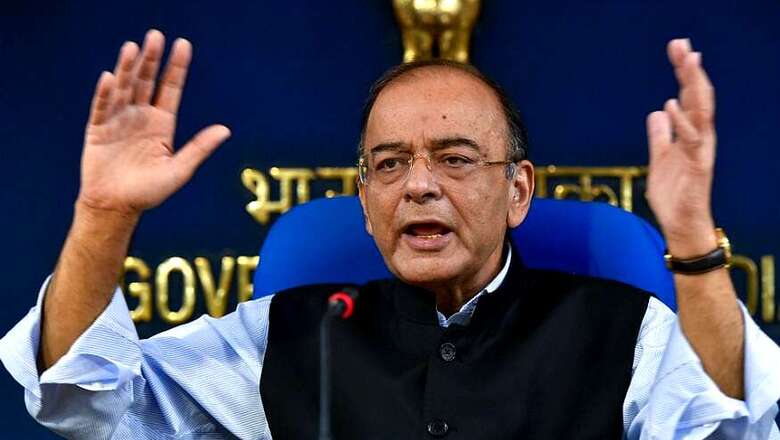
views
New Delhi: The finance ministry will take up the issue of dividend and Prompt Corrective Action (PCA) and easing of SME loan norms by public sector banks banks with the RBI when finance minister Arun Jaitley will address the Board of Directors of the Reserve Bank on Monday in his first meeting after the Interim Budget.
There will be discussions on these three issues with RBI. The ministry will seek alignment of capital norms with Basel III, informed sources said.
Indian banks as per RBI directions are required to maintain 5.5% Common Equity Tier 1 (CET 1) as against 4.5% required under the Basel III framework. Currently, the RBI applies stricter norms and not those specified under Basel III for capital adequacy, leading banks to set aside higher capital for loans.
The government has been in favour of alignment of the capital adequacy norms with Basel III norms. This higher capital norms translate into additional capital requirement, restricting lending potential and income generation, the sources said.
Many of the RBI's Indian framework on banking capital regulatory rules are more conservative than the Basel framework. This includes higher minimum capital requirements and risk weightings for certain types of exposures as well as higher minimum capital ratios.
The RBI also applies certain restrictions to banking activities through its prudential framework. This needs to change. If RBI relaxes the norms, around Rs 6 lakh crore of lending can be achieved without any additional requirement for provisioning, said the sources.
With three banks out of Prompt Corrective Action (PCA) and two banks set to be out of PCA by default, of the 11 banks six remain the restrictive framework. The government wants the capital norms to be relaxed. RBI may have already tweaked the RoA or return on assets norms which allowed Bank of Maharashtra, Bank of India and Oriental Bank of Commerce to come of PCA framework.
Currently, banks having negative RoA for two-four consecutive years are brought under PCA framework. Under the PCA framework, the regulatory trigger points in terms of three parameters - capital to risk weighted assets ratio (CRAR), net non-performing assets (NPA) which are taken care of through recapitalistaion of banks by the government.
The Finance Ministry wants formal commitment on Rs 28,000 crore interim dividend. If the central board of RBI agrees to pay Rs 28,000 crore as interim dividend, total surplus transfer to the government would be Rs 68,000 crore in the current fiscal. RBI has already paid Rs 40,000 crore.
Last month, RBI governor Shaktikanta Das had said the central bank was yet to take a decision on dividend. So far RBI has not indicated anything but its audit board had taken up the matter recently. The RBI, which follows the July-June fiscal year, has already transferred Rs 40,000 crore in the current fiscal.
In order to enhance bank lending to MSMEs, the finance ministry will seek easing certain 'risk-weight' guidelines for lending to MSMEs and align them to globally accepted benchmarks. Globally accepted benchmark of a maximum of 75 per cent risk weight for smaller companies as compared with present 150 per cent risks weight for both rated and unrated MSME loans.




















Comments
0 comment